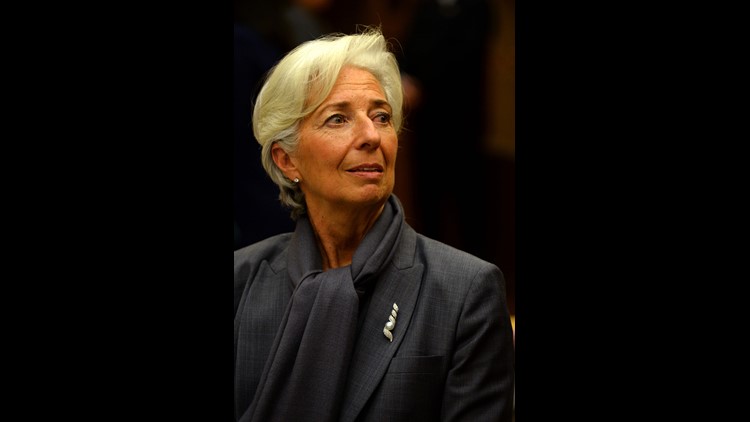![AFP 550491083 I GOV FRA [image : 82589830]](http://www.gannett-cdn.com/media/2016/04/03/USATODAY/USATODAY/635953041488253227-AFP-550491083.jpg)
The head of the International Monetary Fund moved to smooth tensions with Greece Sunday after a transcript of a leaked phone call drew a backlash from Greek officials and raised questions about whether Athens can obtain more loans as part of its $98 billion bailout.
“I agree with you that successful negotiations are built on mutual trust, and this weekend’s incident has made me concerned as to whether we can indeed achieve progress in a climate of extreme sensitivity to statements of either side,” IMF managing director Christine Lagarde wrote in a letter to Greek Prime Minister Alexis Tsipras.
“On reflection, however, I have decided to allow our team to return to Athens to continue the discussions.”
The transcript, published by WikiLeaks on Saturday, shows IMF officials plotting to press German Chancellor Angela Merkel to reduce Greece’s debt burden or face the IMF’s withdrawal from the bailout program.
“Look you, Mrs. Merkel, you face a question,” Poul Thomsen, the head of the IMF’s European unit, told Delia Velkouleskou, the IMF’s mission chief for Greece. “You have to think about what is more costly, to go ahead without the IMF… or (to) take the debt relief that we think that Greece needs in order to keep us on board?”
IMF officials have long maintained the bailout plan is not viable without more debt relief for Greece but it has also pushed Athens to implement more budget-cutting measures, such as pension cuts. Greek officials cited the leaked conversation to support their view that the IMF is blocking completion of a review of the bailout program that would enable Greece to secure more loans, according to the Wall Street Journal.
Tsipras sent a letter to Lagarde on Saturday demanding to know the IMF’s position. .
“Any speculation that IMF staff would consider using a credit event as a negotiating tactic is simply nonsense,” Lagarde said in the letter.
Greece and its creditors -- the IMF, the European Central Bank and European Commission -- reached an 11th hour deal on the bailout plan last summer.
The new conflict comes at a sensitive time, with Greece serving as a way station for thousands of Syrian refugees in recent months, keeping Germany from having to cope with the crisis. Recently, however, Greece reached a deal to send many of the migrants back to Turkey.
“I can't imagine that the (European Union) governments or the IMF will do anything to destabilize a situation in Europe that is potentially very unstable, given the migrant crisis,” said IHS Chief Economist Nariman Behravesh.



